Covid: Testing asymptomatic children should end, experts say
- Published
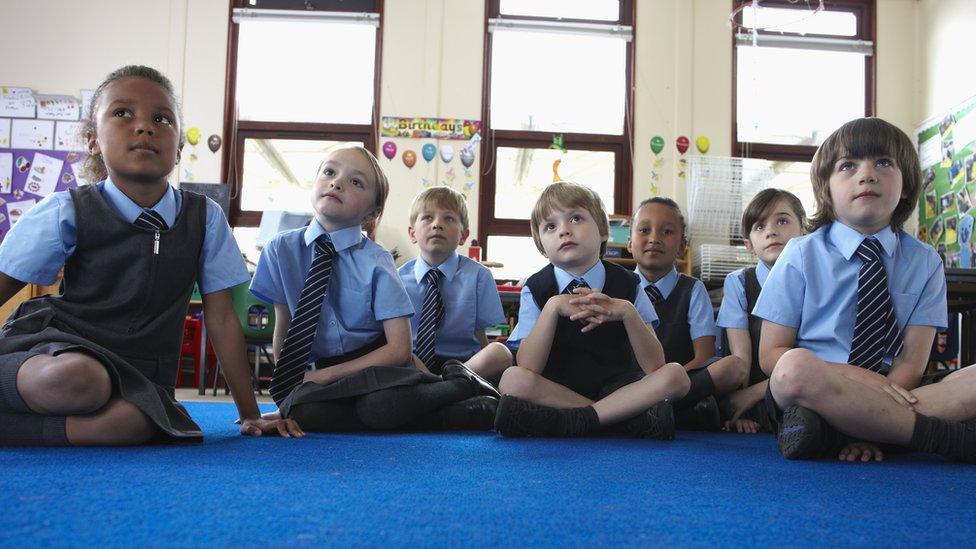
In primary schools, only staff members are expected to take regular tests
Testing children who do not have Covid symptoms should end amid fears of a "huge strain" on schools.
Dr David Tuthill, officer for Wales for the Royal College of Paediatricians, questioned whether asymptomatic testing was doing "more harm than good".
Latest figures showed more than half of positive cases are among children and under-19s.
The Welsh government said regular testing was essential to support face-to-face learning.
Laura Doel, director of teaching union NAHT Cymru, said school leaders were forced to "take some matters into their own hands" due to the a "clear failing" of the Test, Trace, Protect (TTP) system.
Ms Doel said schools were "struggling" to cope with contact tracing.
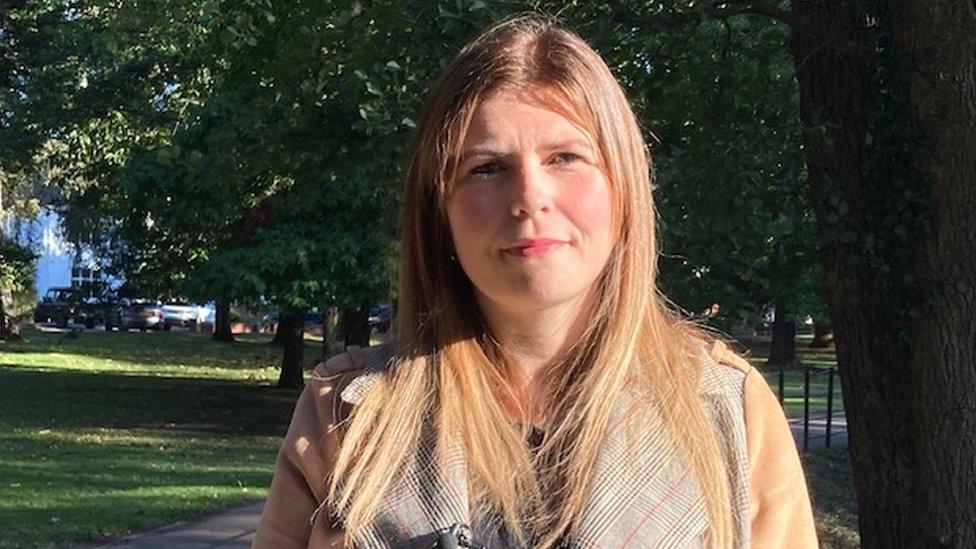
Test, Trace, Protect is disruptive to children's education and difficult for staff to manage, Laura Doel says
"Unfortunately, members are waiting days, in some cases weeks, before they hear from TTP, which is putting a huge strain on schools," she said.
"The result being that we have high numbers of staff absences, high numbers of learners unable to attend school because they're contracting Covid and unless somebody steps in and addresses the problem we're only going to see further disruption to education."
Public Health Wales figures for Wednesday showed that 51.5% of positive Covid cases occurred in under-19s.
Swansea Bay University Health Board has revealed that almost as many under-15s had been in hospital with Covid in the past three months as had been throughout the pandemic.
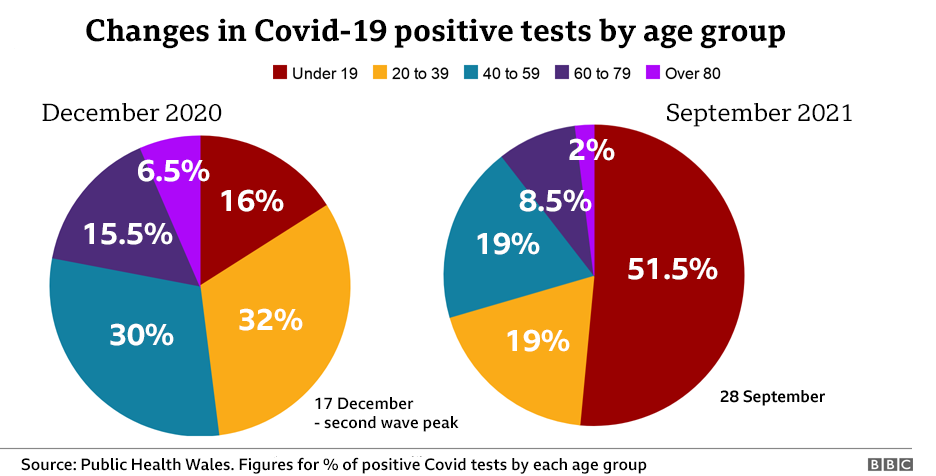

But Dr Tuthill said that serious illness to children as a result of Covid remained rare.
He said there were currently more cases among children who were "now the unvaccinated reservoirs and Covid is going to spread more in that age group".
"But Covid itself rarely produces serious illness in children," he added.
He said the "real problem" was children suffering with their mental health due to clubs and schools being closed during the first wave of the pandemic.
Vaccinating 12 to 15-year-olds from next week "should reduce the spread of Covid and help children stay in school", he added.
The Royal College of Paediatrics and Child Health has called for a halt to testing children who do not have symptoms.

Picking up asymptomatic cases could be doing more harm to children through the impact on their schooling and mental health, Dr Tuthill says
Dr Tuthill said children "obviously shouldn't be in school" if they have a high fever and runny nose, but if that is not the case, "are we doing more harm than good?"
"I think we may have to move into another phase now where we may say: 'OK, Covid's going to be here for the long term - if we're protecting, with the vaccinations, vulnerable people, those on immunosuppressants, the elderly, should we now start being less worried and stop testing asymptomatic children'?"
A mother-of-two from Newport said TTP was "failing" them.
She wanted to remain anonymous as she did not want her experience to reflect badly on the school, which she said was "only following government guidance."
"In my son's primary school class, there have been five cases. When the first case was discovered, the child's parent contacted the school but we didn't get contacted by TTP for five days, by which time it had spread.
"If we had known straight away we could have had our children tested immediately. We didn't know anything about it when my son had contact with my elderly parents during the five days.
"We were very lucky that my son later tested negative. People are fed up with testing, it's relentless and the children are fed up with it."
Mererid Mair, a mother of two boys who go to a high school in Caernarfon, Gwynedd, said: "My own children worry that their friends are ill, worry that they're going to catch Covid and are going to pass it on to nan and tad - it's a difficult situation to be in."
She added that safety measures in schools last term were not that "restrictive" and would welcome the reintroduction of some again.
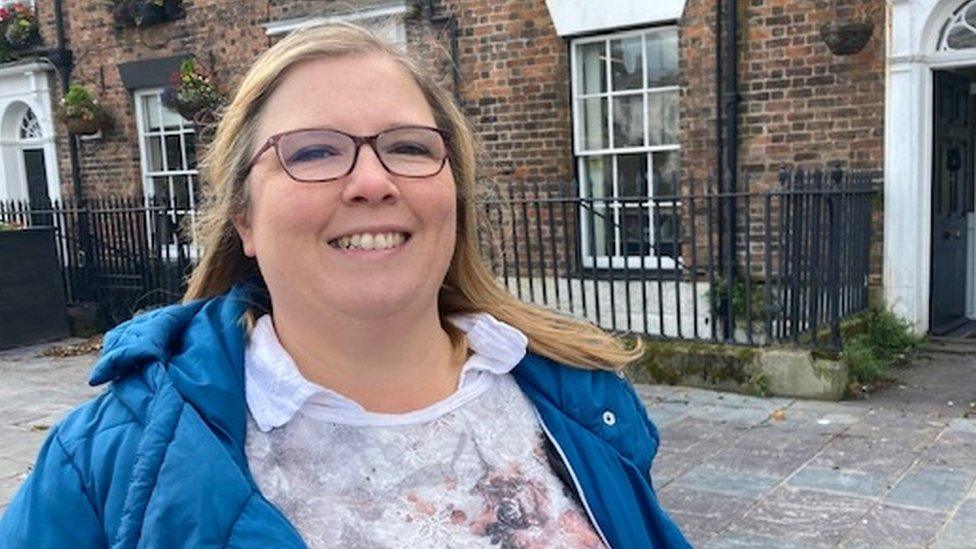
Mererid Mair raised concerns about the affect on young people's mental health
The Welsh government said testing helped identify anyone who was infectious.
"It's important that staff and pupils take part in regular testing and report their results online to make it as effective as possible," a spokesman added.
It said reviews were every three weeks "to ensure we are only asking people to regularly test when it is absolutely essential to supporting face-to-face education to continue for the majority of learners".

MONUMENTAL MRS CAMPBELL: Wales' first black head teacher celebrated with iconic statue
MOTHERS, MISSILES AND THE AMERICAN PRESIDENT: The story of Greenham told like never before

- Published19 September 2021
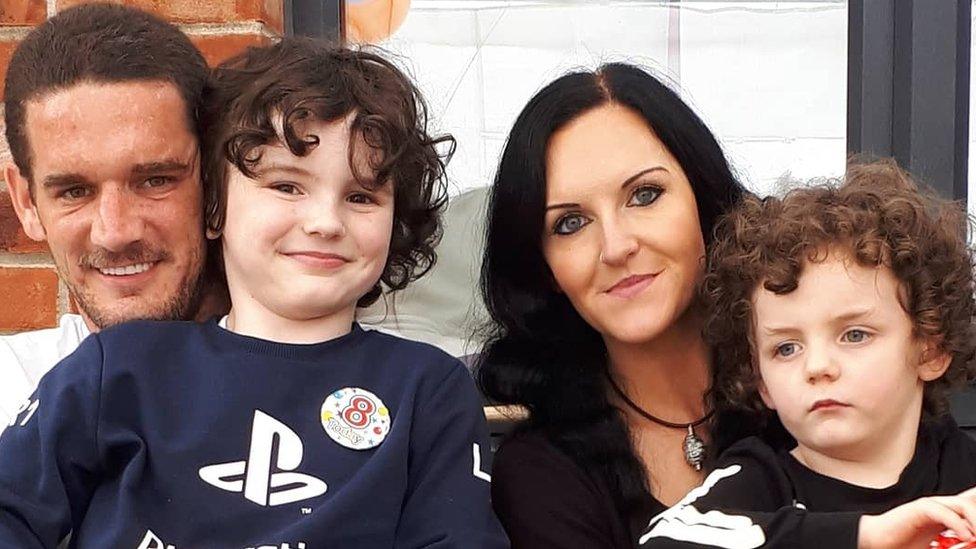
- Published5 February 2021
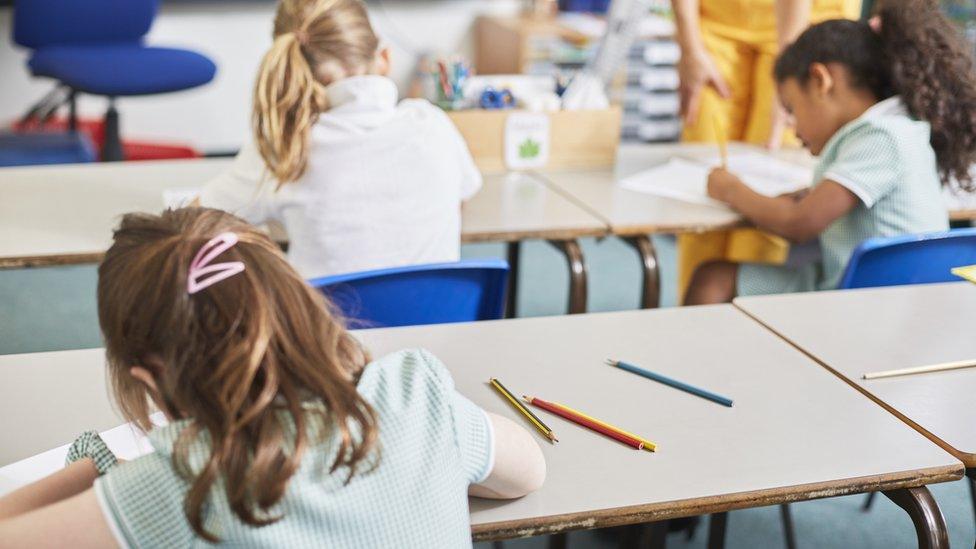
- Published23 February 2022

- Published20 September 2021
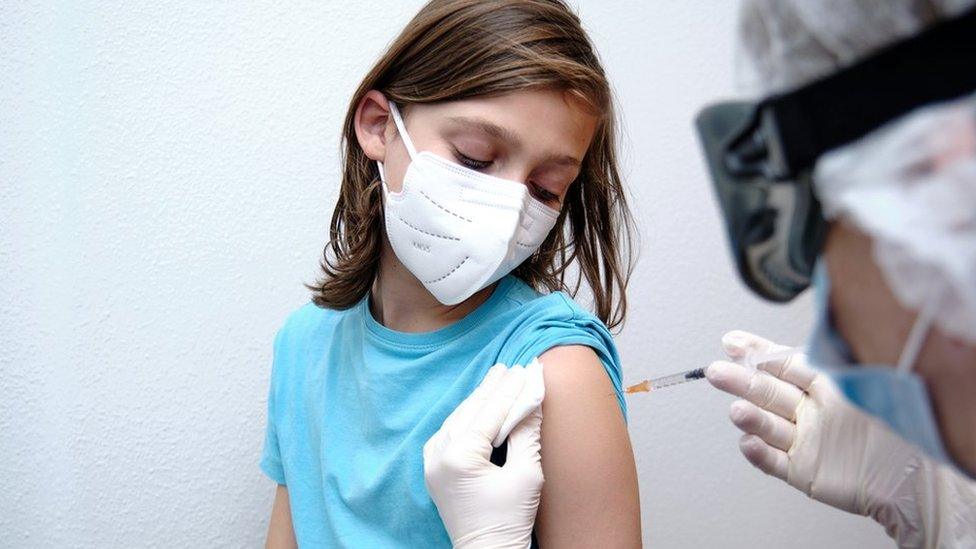
- Published15 July 2021

- Published28 May 2024
